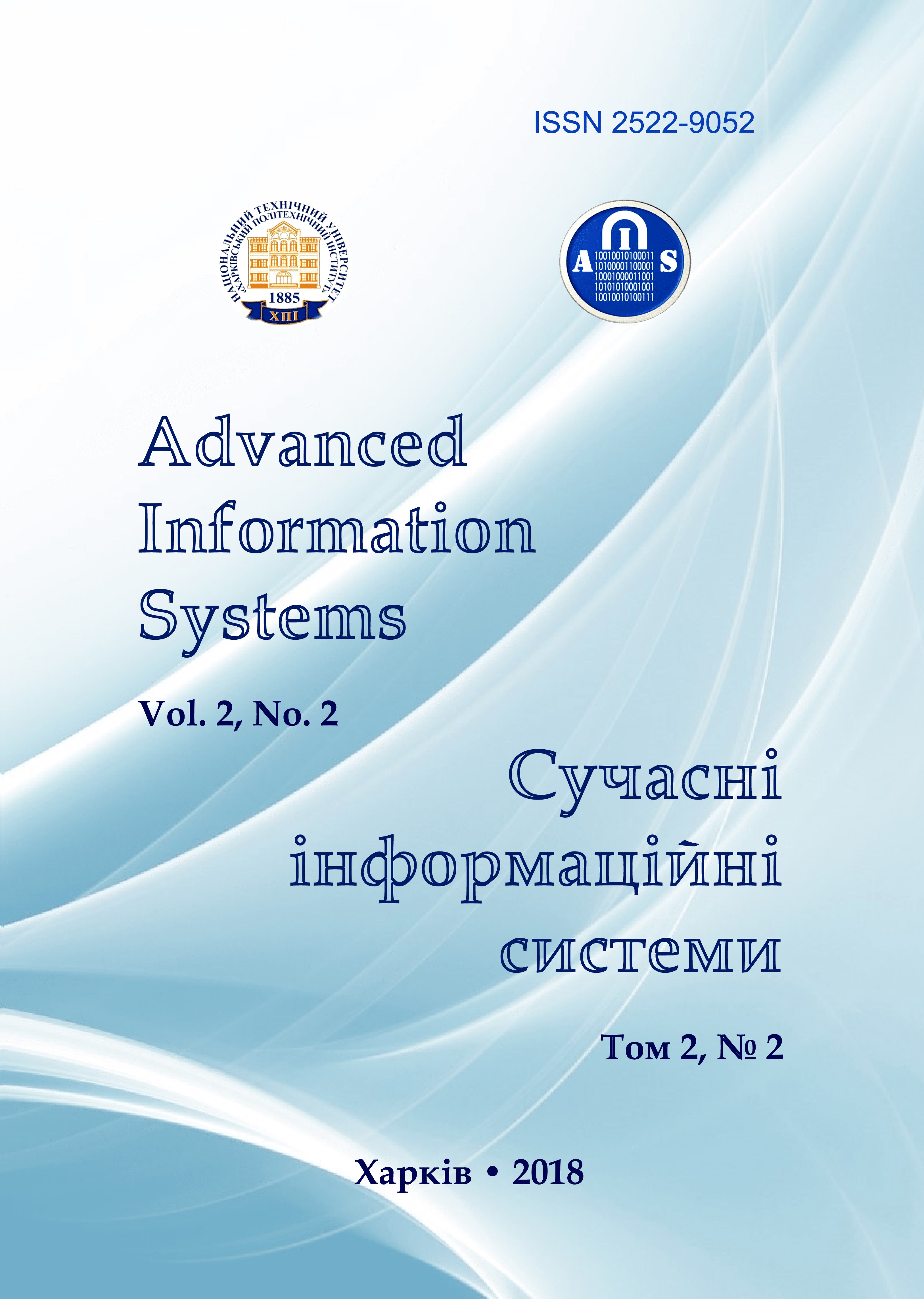LOGICAL - PROBABILISTIC REPRESENTATION OF CAUSAL DEPENDENCIES BETWEEN EVENTS IN BUSINESS PROCESS MANAGEMENT
Main Article Content
Abstract
The subject matter of the article are the processes of identifying knowledge in the form of causal relationships based on the analysis of the log of the business process. The goal is to develop a logical-probabilistic model of cause-effect relationships between pairs of log events that describes the implementation of the business process's action to support the solution of the task of automating the construction of the knowledge base of the process management system. Tasks: Select context constraints and limitations on the execution of business process actions that can be obtained as a result of log analysis; develop an approach to extract the probabilistic and logical components of cause-effect dependencies; to develop a logical-probabilistic model of causal relationships. The methods used are: methods for constructing predicate models; Bayesian methods of constructing probabilistic models. The following results are obtained. Formalized class of causal dependencies for knowledge-intensive business processes. Such dependencies can take into account informal knowledge of the business process. Within this class there are: a predicate description of the state of the context based on information about values of attributes of log events; contextual constraints on doing business process actions; probabilistic conditions for implementing the business process. Conclusions. The scientific novelty of the results obtained is as follows: a logical-probabilistic model of cause-effect relationships between pairs of log events describing the performance of the business process is proposed. The model binds a logical description of the state of the context before and after the completion of each activity of the business process, as well as a logical description of the constraints on the actions of the process and a probabilistic description of the conditions for the execution of these actions. In practical terms, the model provides an opportunity to solve problems of extracting, expanding and integrating knowledge based on the analysis of logs of business processes.
Article Details
References
Vom Brocke, J., Rosemann, M. (2015), Handbook on Business Process Management 1. Introduction, Methods, and Information Systems, Springer-Verlag Berlin Heidelberg, 709 p.
Gronau, N. (2012). Modeling and Analyzing knowledge intensive business processes with KMDL: Comprehensive insights into theory and practice (English), Gito, 522 p.
El-Den J.A. (2009), Tacit knowledge externalization among geographically distributed small groups, PhD Thesis’s, University of Technology, Sydney, Australia, 323 p.
Warren, P., Kings, N., Thurlow, I., Davies, J., Brger, T., Simperl, E., Ruiz, C., G´omez-P´erez, J., Ermolayev, V., Ghani, R., Tilly, M., Bsser, T. and Imtiaz, A (2009), “Improving knowledge worker productivity the active approach”, BT Technology Journal, No. 26, pp.165-176.
Dong, X. L., Gabrilovich, E., Heitz, G., Horn, W., Murphy, K., Sun, S. and Zhang, W. (2014), “From data fusion to knowledge fusion”, International Conference on Very Large Data Bases (VLDB).
B. Min, R. Grishman, L. Wan, C. Wang, and D. Gondek. (2013). Distant supervision for relation extraction with an incomplete knowledge base. In Conference of the North American Chapter of the Association for Computational Linguistics: Human Language Technologies (NAACL).
Murphy, K. (2013), “From big data to big knowledge”, ACM International Conference on Conference on Information and Knowledge Management (CIKM), New York, NY, USA.
Chen, Y. and Wang, D.Z. (2014), “Knowledge expansion over probabilistic knowledge bases”, ACM SIGMOD International Conference on Management of Data (SIGMOD).
Niu, F., Zhang, C., R´e, C. and Shavlik, J.W. (2012), “Elementary: Large-scale knowledge-base construction via machine learning and statistical inference”, Int. J. Semantic Web Inf. Syst.
Pearl, J. (2000), Causality: models, reasoning, and inference, Cambridge University Press, Cambridge.
Alon N. and Spencer J.H. (2008), The Probabilistic Method, Wiley-Interscience, third edition.
Friedman, N., Getoor, L., Koller, D. and Pfefier, A. (1999), “Learning probabilistic relational models”, International Joint Conference on Artificial Intelligence (IJCAI).
Koller, D., Friedman, N. ( 2009), Probabilistic Graphical Models: Principles and Techniques, MIT Press.
Ritter, J., Li, A., Jurafsky, D. (2014), “Inferring user preferences by probabilistic logical reasoning over social networks”, arXiv preprint arXiv:1411.2679, available at: https://arxiv.org/abs/1411.2679 (last accessed March 01, 2018).
Bröcheler, M., Mihalkova, L. and Getoor, L. (2012), “Probabilistic similarity logic. Computing Research Repository”, abs/1203.3469, available at: http://arxiv.org/abs/1203.3469 (last accessed March 01, 2018).
